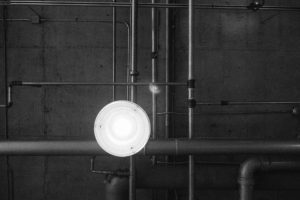Many homeowners incur high service charges due to poor planning and preparation before a service call. Typically, plumbers charge by the hour, which means that the plumber is paid for every hour he/she spends at the client’s home or premises. However, some of these chargeable hours are actually wasted on relatively mundane tasks that can be handled quite easily by the client before the plumber even arrives. These are simple DIY worksite preparation tasks that require common sense rather than expertise, but which can end up saving you a great deal of money on a service call. Before discussing these DIY tasks, it is important to review the buildup to a plumbing service call. Whether it’s an emergency service call like a backed up sewer system or water heater repair or a big project call like a bathroom renovation undertaking, there are things that should always be done before the plumber arrives. First of all, you should always inspect and assess the magnitude of the plumbing problem before calling in a professional plumber. In this way, you will be able to ascertain whether you really need the services of a professional plumber or if a simple DIY fix will resolve the issue. If the problem is serious enough to warrant a service call, such as a sewer line problem, you can then contact any expert plumber offering DC sewer services for assistance. However, you must do the following things before the plumber arrives — to save time and reduce the service charge.
Clear The Worksite
One of the most important things that should be done before the plumber arrives is to clear out the plumbing area to enable the plumber to work quickly and efficiently. Some plumbing areas are usually cluttered with various household items, such as utensils near and around the sink or home items by the water heater worksite. Although it’s normal to store or place various items near these areas on ordinary days, it is imperative that you remove any unnecessary items from a faulty plumbing section before the plumber comes. Otherwise you will waste precious moments, which could be used to handle the actual plumbing problem, clearing the plumbing site with the professional plumber(s). In order to reduce the billable hours, ensure that the plumber has ample room to work and to store plumbing tools and to place removed faulty parts and even replacement parts before they are installed.
Turn Off The Electricity
Some serious plumbing issues necessitate that the entire home electric system be shut off at the mains, such as a seriously malfunctioning water heater system. Other problems require that the electric connection to a particular area or appliance be shut off at the breaker box, such as a hot tub installation. Depending on the nature of the plumbing problem, you should always turn of the power source of an electric-powered device or system. Switching off the electricity in a faulty system will not only save the plumber time, it will also ensure safety at home.
Shut-Off The Water
Almost all plumbing problems are water-related. As such, the first thing that should be done before the plumber arrives is to turn off the water at the main shut-off valve. Typically, the main shut-off is usually located near the water meter. By turning off the water, you will mitigate the physical damage that might occur due to the plumbing fault, such as leaking pipes, and also save time for the plumber. If there are no leaks or floods occurring, at least locate and know where the shut-off valve is so if the plumber needs it turned off, you are prepared.




